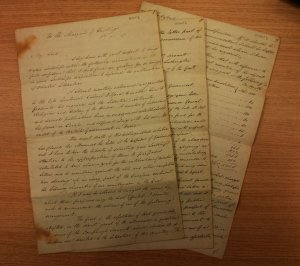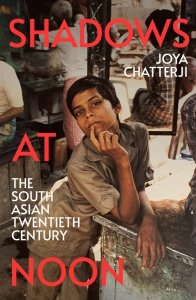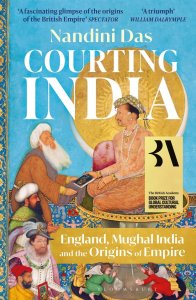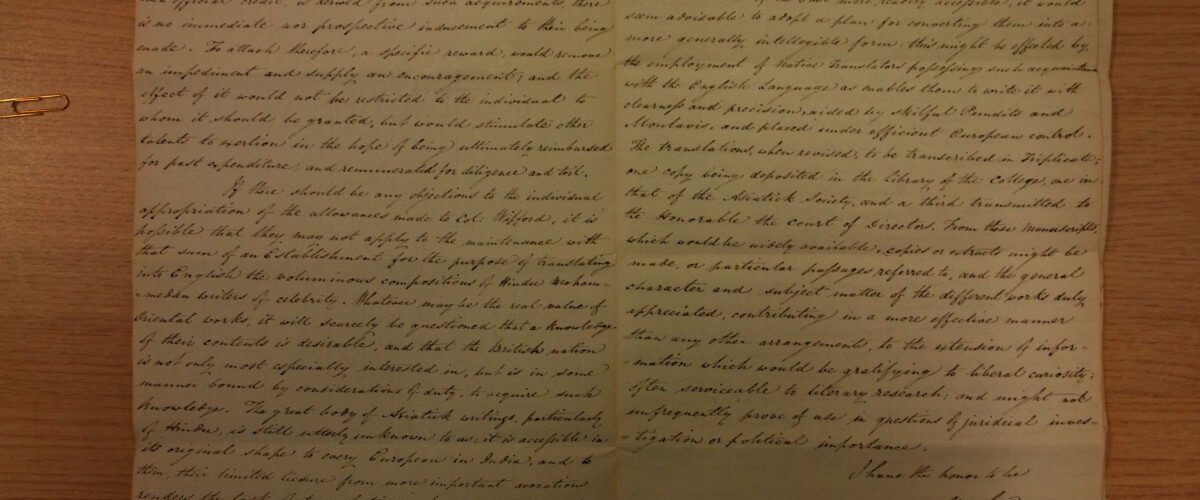Happy Birthday, Horace Hayman Wilson
Yesterday, 26th September, marked 238 years since the birth of Horace Hayman (H.H.) Wilson who was born in 1786 in London. He went to school at the Soho Academy. He was an able academic student but growing up in the Soho area, he also developed a lifelong love of theatre. In his school holidays he stayed with his uncle and worked alongside him at the Royal Mint. On leaving school he studied medicine at at St Thomas’s Hospital, London, becoming a member of the Royal College of Surgeons in 1805. But in 1808 he joined the East India Company as an assistant-surgeon and sailed for India, reaching Kolkata (Calcutta) in March 1809. Shortly after arrival, Wilson’s knowledge of metallurgy and coins was discovered and he became John Leyden’s assistant at the Calcutta Mint.
When not working Wilson continued to indulge his love of theatre, being an active leader and actor in the Calcutta theatre. However, his main interest became the study of Indian languages, especially Sanskrit. He became Secretary of the Asiatic Society of Bengal in 1811, recommended by Henry Thomas Colebrooke, himself a Sanskrit scholar. Wilson remained in the position of Secretary for 21 years and published many papers in the Society’s journal, Asiatic Researches. In 1816 he succeeded Leyden as the assay master at the mint and in 1819 he was sent to reorganise the Sanskrit College at Benares.
By the 1820s Wilson served in many capacities for the advocacy of education of Indian young men. He was a proponent of teaching in native languages and mixing western and traditional teaching methods. Within our archives are some letters which reveal him in an advocacy role. These are copies of letters which were given to the Society by Lieutenant-Colonel Charles (Carlo) Joseph Doyle, on 15 March 1834, as part of a much larger donation. It is not known who made the copies, whether Doyle himself or some other hand, but they are titled: ‘Copy of Correspondence between the Secretary to the Bengal Government and H.H. Wilson Esquire relative to the appropriation of the allowance of the late Col. Wilford of Rs.1218 per month for the purpose of forming an Establishment in India for the prosecution of Researches into the Literature, History etc. of the Hindus’.

Wilson was advocating that the allowance that had been given to Colonel Wilford for his study into Hinduism should, after his death, be allocated to create an establishment so that many more could also benefit from such study. In total there are four letters which can be summarised as:
- Letter from H.H. Wilson to the Marquis of Hastings, Governor-General, in which he enquires whether the allowance originally granted to the late Lieutenant Colonel Wilford for his enquiries into the ‘Literature, Antiquity, Religion and History of the Hindus’ may be continued to be used for further study by other of the Company’s servants. He sets out possible conditions around the use of the money. Dated 11 December 1822, 3 sides.
- Letter from C. Lushington, Acting Chief Secretary to the Government, to H.H. Wilson in which he replies on behalf of the Governor General to the effect that the Governor General is in agreement with Wilson’s proposal and asks that Wilson himself will provide the appropriate detail as to how to form an Establishment for Hindu studies. Dated 31 December 1822, 1.2 sides.
- Letter from H.H. Wilson to C. Lushington in which he provides the details of his thoughts on creating an Establishment and his opinion of the necessity for the study of Sanskrit works. He gives a breakdown of how the allowance might be spent and also reflects that the Establishment of the late Colonel Mackenzie might also be combined with the one he is proposing. Dated 20 January 1823, 7 sides.
- Extract of a letter from the Chief Secretary to H.H. Wilson in which he informs that Wilson’s arrangements have been sanctioned by the Government. Dated 30 January 1823, 0.3 sides.
These letters show Wilson not only to be a proponent of learning but also willing to carry out the necessary work to ensure it could take place. He left India in 1833 after being appointed the first Boden Professor of Sanskrit at Oxford University. He lived in Oxford with his wife, Frances Sarah Parr Siddons (granddaughter of the actress, Sarah Siddons), and family for three years before moving to London to also become librarian at East India House. He must have been a man of great energy for, in 1837, he also became Director of the Royal Asiatic Society, a role he held until his death in 1860, also serving as President from 1855-1858.
Throughout his life Wilson wrote extensively about Sanskrit literature, Hindu religion, and Indian history. His works include: The Cloud Messenger (a translation of Kalidasa’s Meghadhuta) (1813), a Sanskrit–English Dictionary (1819; revised, 1831), Select Specimens of the Theatre of the Hindus (2 vols., 1826–7), a translation of the Samkhya karika of Isavarakrnsa (1837), The Vishnu Purana: a System of Hindu Mythology and Tradition (1840), Lectures on the Religious and Philosophical Systems of the Hindus (1840), and a Sketch of the Religious Sects of the Hindus (1846). He had begun a translation of the Rig-Veda (1850), but died before it was completed. Within the archives is a handwritten manuscript of the ‘Analytical Account of the Pancha Tantra illustrated with occasional Translation’ written by Wilson, and read at the General Meetings of the Society on 15 May and 5 June 1824. It was subsequently published in the Transactions of the Society.

The Royal Asiatic Society has much to be thankful for in the life of H.H. Wilson and his many years of dedicated service in the Society’s early life. So has Sanskrit scholarship for, although his work has long been superseded, he paved a way for that future scholarship. So happy birthday, H.H. Wilson, may you be long remembered.
(Thanks to the Oxford Dictionary of National Biography for some biographical information.)
~ ~ ~ ~ ~
And of course scholarship on Asian history is alive and well. We are delighted to announce that RAS member Joya Chatterji has been shortlisted for the 2024 Wolfson History Prize for her book, Shadows at Noon: The South Asian Twentieth Century.

Also shortlisted is Nandini Das for her book, Courting India: England, Mughal India and the Origins of Empire. The RAS recently hosted a book launch and discussion for Nandini’s book.

The Wolfson History Prize is given annually to celebrates history books which combine excellence in research with readability. Joya Chatterji’s book, which tells the South Asian story from the British Raj to independence and partition and on to the forging of the modern nations of India, Pakistan and Bangladesh, is structured thematically rather than chronologically. Nandini Das tells the story of Thomas Roe who arrived in India in 1616 as James I’s ambassador to the Mughal Empire. More details about the books and the prize can be found on the Wolfson History Prize website. We send our congratulations to both Joya and Nandini and wish them well both in the competition and for their future careers.
Nancy Charley, 27 September 2024.

